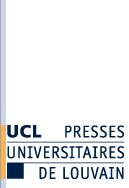Generalised algebraic models
Première édition
Algebraic theories and algebraic categories offer an innovative and revelatory description of the syntax and the semantics. An algebraic theory is a concrete mathematical object -- the concept -- namely a set of variables together with formal symbols and equalities between these terms; stated otherwise, an algebraic theory is a small category with finite products. An algebra or model of the theory is a set-theoretical interpretation -- a possible meaning -- or, more categorically, a finite product-preserving functor from the theory into the category of sets. We call the category of models of an algebraic theory an algebraic category. By generalising the theory we do generalise the models. This concept is the fascinating aspect of the subject and the reference point of our project. We are interested in the study of categories of models. We pursue our task by considering models of different theories and by investigating the corresponding categories of models they constitute. We analyse localizations (namely, fully faithful right adjoint functors whose left adjoint preserves finite limits) of algebraic categories and localizations of presheaf categories. These are still categories of models of the corresponding theory.We provide a classification of localizations and a classification of geometric morphisms (namely, functors together with a finite limit-preserving left adjoint), in both the presheaf and the algebraic context.
Spécifications
- Éditeur
- Presses universitaires de Louvain
- Partie du titre
-
Numéro 2
- Auteur
- Claudia Centazzo,
- Collection
- Thèses de la Faculté des sciences | n° 2
- Langue
- anglais
- Catégorie (éditeur)
- Sciences exactes > Mathématiques > Algèbre, géometrie et logique
- Catégorie (éditeur)
- Sciences exactes > Mathématiques
- BISAC Subject Heading
- SCI000000 SCIENCE
- Code publique Onix
- 06 Professionnel et académique
- CLIL (Version 2013-2019 )
- 3051 SCIENCES FONDAMENTALES
- Date de première publication du titre
- 2004
- Subject Scheme Identifier Code
- Classification thématique Thema: Mathématiques et sciences
- Type d'ouvrage
- Thèse
Livre broché
- Date de publication
- 11 octobre 2019
- ISBN-13
- 978-2-87558-848-7
- Ampleur
- Nombre de pages de contenu principal : 478
- Dépôt Légal
- D/2019/9964/41 Louvain-la-Neuve, Belgique
- Code interne
- 99206
- Format
- 17 x 24 cm
- Poids
- 800 grammes
- Type de packaging
- Aucun emballage extérieur
- Prix
- 37,50 €
- ONIX XML
- Version 2.1, Version 3
- Date de publication
- 11 octobre 2019
- ISBN-13
- 978-2-87558-849-4
- Ampleur
- Nombre de pages de contenu principal : 478
- Dépôt Légal
- D/2019/9964/41 Louvain-la-Neuve, Belgique
- Code interne
- 99206PDF
- Prix
- 25,00 €
- ONIX XML
- Version 2.1, Version 3
Google Livres Aperçu
Publier un commentaire sur cet ouvrage
Si vous avez une question, utilisez plutôt notre formulaire de contact
Sommaire
Introduction:
Guido's walks / Guido’s talks
Paul Arblaster, Ingrid Bertrand, Véronique Bragard, Dirk Delabastita xi
I. Biblical and philological excursions
II. Shakespearean wanderings
III. Flanders Fields and other sites of memory
IV. Border crossings
V. Moments revisited, futures envisaged

